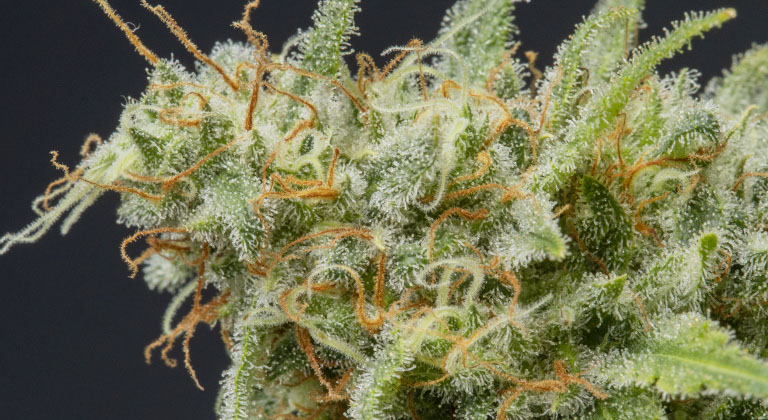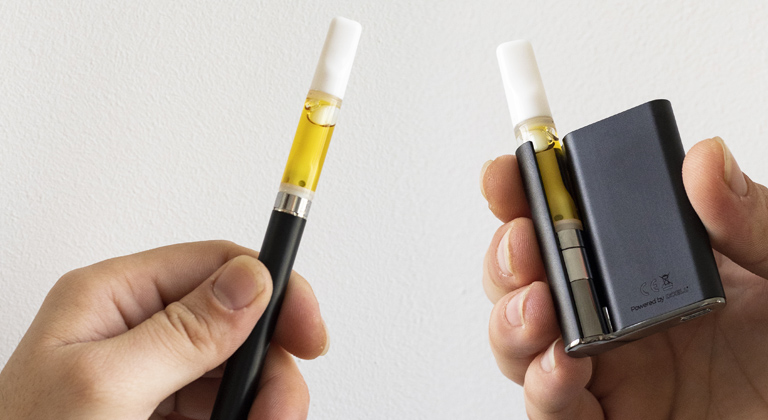THC is the most well-known cannabinoid of the cannabis plant, renowned for its psychoactive effects but also for causing side effects in some users, which include anxiety.
A recent scientific study published on April 1st and conducted at the University of Colorado (USA), examined the ability of limonene to mitigate THC-induced anxiety.
According to this research, this terpene, which is known for its citrusy aroma and flavor, could play a significant role in lessening the uncomfortable anxiety feelings that some consumers and patients experience when using THC.
What is THC?: Action Mechanisms and Side Effects
THC is the primary cannabinoid of the cannabis plant, as it is usually found in the highest quantities.
In the recreational field, this cannabinoid is known as the main culprit for the plant’s psychoactive effects. However, THC is also very useful medically, being a key tool in the treatment of certain diseases.
In fact, the second part of a trial treatment for Glioblastoma (a very aggressive type of brain cancer) is currently underway with this cannabinoid.
THC primarily acts through receptors in the endocannabinoid system located in the brain, producing psychoactive effects.
However, some users experience uncomfortable side effects, such as dry mouth, paranoia, and anxiety.
What is Limonene?
D-limonene is one of the main terpenes in cannabis. It is found in great amounts in its aromatic profile, and is responsible for its fresh and citrusy scent. Limonene also provides anxiolytic and mood-lifting effects.
The “entourage effect” refers to the theory that the plant’s different compounds, such as terpenes and cannabinoids, can modulate the effects of both THC and other compounds. This can lead to a more balanced and potentially more therapeutic profile than when cannabinoids are used in isolation.
Investigating the Properties of Limonene to Modulate the Effects of THC
In this recent study (1), researchers explored the ability of limonene to reduce THC-induced anxiety.
For this purpose, twenty healthy adults participated in this controlled trial in which they completed nine double-blind sessions (in these sessions, neither participants nor researchers know what treatment participants receive until the clinical trial is over).
In these 9 sessions, participants inhaled:
- Vaporized THC
- Vaporized Limonene
- Vaporized THC and Limonene (combined)
- A vaporized placebo
Results not only analyzed subjective effects but also cognitive performance and vital signs. The aim was to provide a comprehensive view of how these compounds act in our body.

Study Results: Does Limonene Actually Attenuate the Anxiety Produced By THC?
The trial results were revealing, as limonene showed differentiating effects in comparison to the placebo; and a significant reduction in anxiety was observed in participants when limonene was combined with THC.
More specifically, subjects showed a greater decrease in THC-induced anxiety and paranoia, without other pharmacokinetic effects of this cannabinoid being altered (pharmacokinetic effects refer to the action of the body on the drug, including absorption, distribution, metabolism, and excretion).
These results suggest that limonene could help alleviate the more unpleasant effects of THC, whilst maintaining its effectiveness in other desired areas.
Implications of the Entourage Effect of Limonene and THC and Future Research
This study opens a promising door to new possibilities for the use of cannabis in the medical field, especially for those patients who need THC-based therapeutic treatments but are susceptible to the side effects of this cannabinoid.
Some approved pharmaceutical THC formulations are being currently used to treat different conditions or symptoms; for example, chemotherapy-induced nausea, or to stimulate appetite in patients who suffer from various diseases (such as advanced HIV/AIDS).
However, both doctors and patients face the obstacle that the THC dose required for treatment effectiveness is often very close to the dose that causes adverse effects.
As we mentioned earlier, one of the main side effects is acute anxiety, or panic and paranoia reactions.
Therefore, new THC-based drug formulations, in combination with other compounds like limonene that can lessen its anxiogenic effects, could expand the therapeutic index by increasing tolerance without reducing the effectiveness of this cannabinoid.
This study certainly represents excellent news for patients and the scientific and medical community.
In their conclusions, the researchers stressed the importance of future research to explore different combinations and doses. In addition, they suggested that it would also be beneficial to extend the scientific research to other terpenes and cannabinoids, in search of optimal formulations and doses for treating various conditions.

Limonene-rich Cannabis Strains
Cannabis strains are differentiated by their unique cannabinoid profile (there are strains with high levels of CBD, CBG, or THC) as well as by their terpene profile (strains can be high in Limonene, Myrcene, Linalool, Terpinolene…).
Breeding strains with specific profiles is one of the milestones achieved in the cannabis industry in recent decades.
Because of this, now we can find strains with higher amounts of Limonene, such as Sour Diesel, Orange Turbo, or 3 Kings.
We encourage you to stay informed about advances in scientific research on cannabis and to partake in the dialogue through Comments. Together, we can achieve a more educated community on safe and responsible use. Keeping up with scientific developments on cannabis and its compounds is not only fascinating but also an excellent way to maximize its therapeutic properties while minimizing risks.

What did you think about this article? Do you have any doubts or opinions? Leave your comment and share with the community!
Cali Terpenes
- Vaporized D-limonene selectively mitigates the acute anxiogenic effects of Δ9-tetrahydrocannabinol in healthy adults who intermittently use cannabis.
Author links open overlay panelTory R. Spindle, C. Austin Zamarripa, Ethan Russo, Lauren Pollak, George Bigelow, Alexandra M. Ward, Bridget Tompson, Cristina Sempio, Touraj Shokati, Jost Klawitter, Uwe Christians, Ryan Vandrey.









